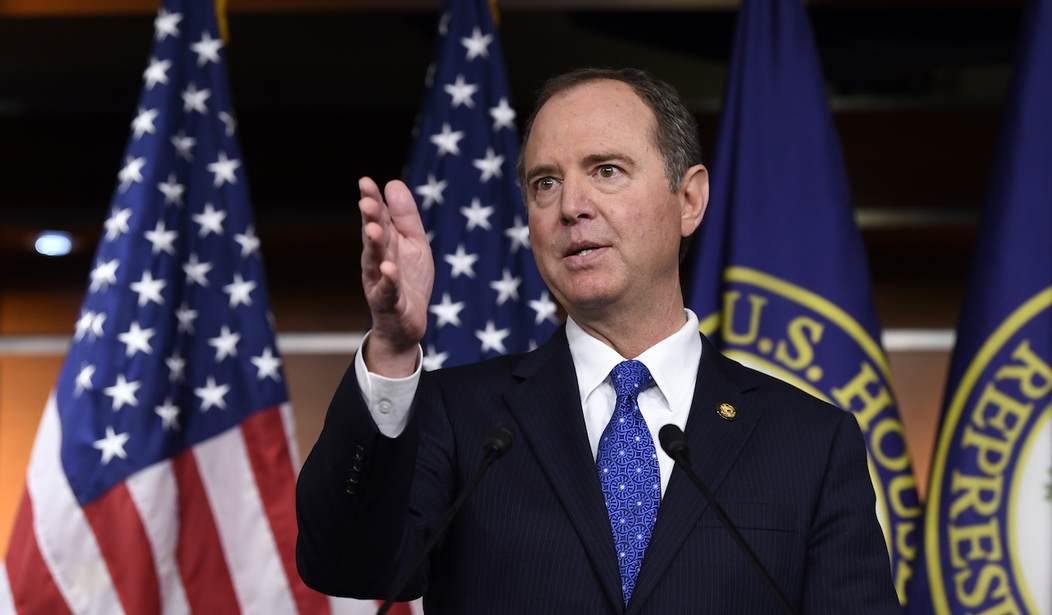As they say, “words have meaning”; even – rather, especially – words in the Constitution. Take the words found in Article 2, Section 4, which provide the only grounds on which a president can be impeached and removed from office: “Treason, Bribery, or other high Crimes and Misdemeanors.” Despite the interminable effort by Pelosi, Schiff and their merry band to ignore both these words and the historical context in which they were written, the President of the United States can be removed from office only if found to have committed a serious (“high”) crime.
In a startling display of ignorance of history – which renowned historian David McCullough wrote recently is something that “keeps him up at night” – impeachment-focused Democrats appear to have forgotten our Founders established a government led by a “President” elected by the People, and not by a “Prime Minister” chosen by the legislative branch.
The difference at the heart of the debate over how our country’s leader may be removed is more than semantic; it reflects clearly two of the principles – separation of powers and checks and balances – woven into the fabric of our constitutional republic. The President is elected by the People but can be removed by the Congress, that is, the legislative branch. In contrast, a British Prime Minister is chosen by and can be removed by the legislative branch in which he or she serves whenever that head of state loses the support of the Parliament, for whatever reason (including, for example, disreputable behavior or “maladministration”).
While technically a prime minister can be removed by impeachment – an extreme procedure under old British law – the use of “impeachment” as a means of removing a prime minister is neither necessary nor useful.
Recommended
In our country, by contrast, the process of “impeachment” takes on far greater importance than in the country from which we extricated ourselves more than two and a quarter centuries ago. This is why “impeachment” must be considered in the context of our system of government, not Britain’s.
In the British parliamentary system, impeachment is used to police its own members, as opposed to how it is intended to be used in America -- as a check by the legislative branch over the Executive. As such, the Founders understood the threshold had to be much higher, to prevent the very type of abuse of power we are witnessing under Democrats today.
If the standard for impeachment were read to include behavior not constituting serious crimes, such as conduct deemed by the pursuing parties as unbecoming of the office, then there would be little, if any, protections on the Executive from being subjected to a constant cycle of challenges from the legislative branch. The effect, when abused as the Founders anticipated, would be to paralyze the office of the President, and subsequently, of the government itself. We have witnessed this also in how the Democrats already have done with the judicial branch, by using friendly judges to enact national injunctions against the President’s domestic agenda. Clearly, this was not the intent of the Framers.
Instead, the Constitution provides the legislative branch with numerous other tools (legislative, appropriations and oversight) to be employed as checks on the Executive. That these powers have not been employed effectively by Congress in recent decades to rein-in presidential abuses and power grabs, reflects not any defect in our Constitution; but instead a growing imbalance of power between these two branches of government. Failure by successive congresses to stand firm against power grabs by a string of modern presidents, must not be permitted to provide justification for this Congress to abuse the impeachment power to remove a president over policy or procedure differences. But this is precisely what the Democrats have attempted to do against President Trump.
The Pelosi-launched and Schiff-driven impeachment effort against Trump does not provide justification to pervert the original intent of the Founders that a president may be removed only for committing serious criminal acts, not because of disagreements – no matter how serious – with the Congress.
This half-baked impeachment effort by Democrats to remove Trump is but a desperate move by a Party utterly bereft of ideas, vision or leadership. Fortunately, the Framers designed the Constitution to prevent against such manifest desperation, not enable it. Try as they might to shoehorn the standard of impeachment to cover a trial that revealed no proof of high crimes or any other legal offenses, Democrats have no constitutional standing to carry their scheme any further; although their blind hatred of Donald Trump will likely fuel their continued efforts to destroy him
























Join the conversation as a VIP Member